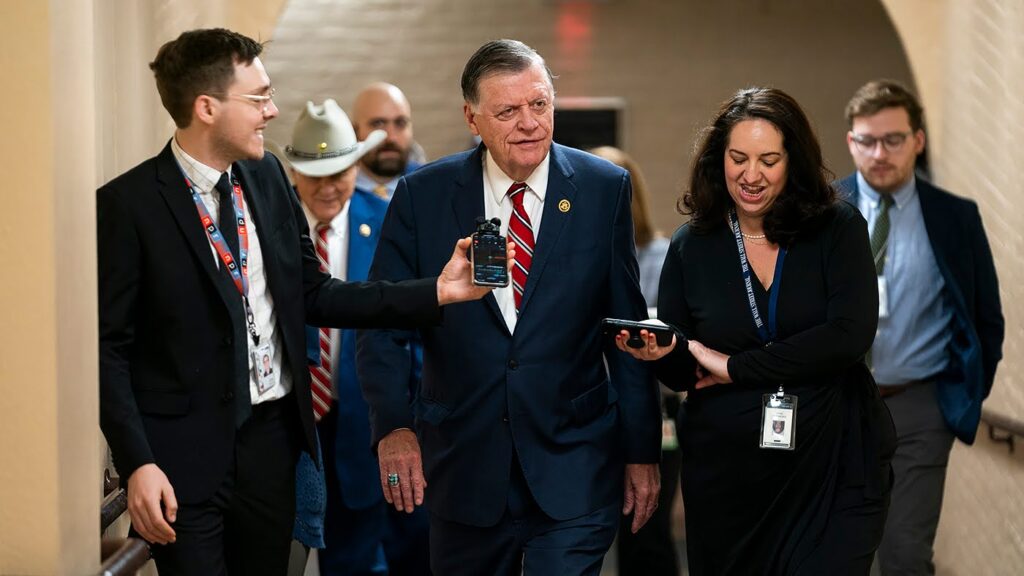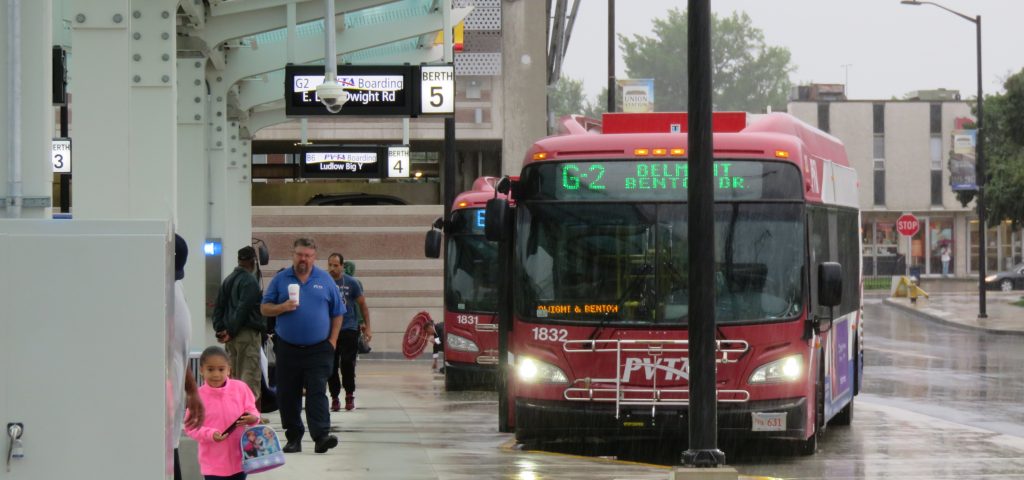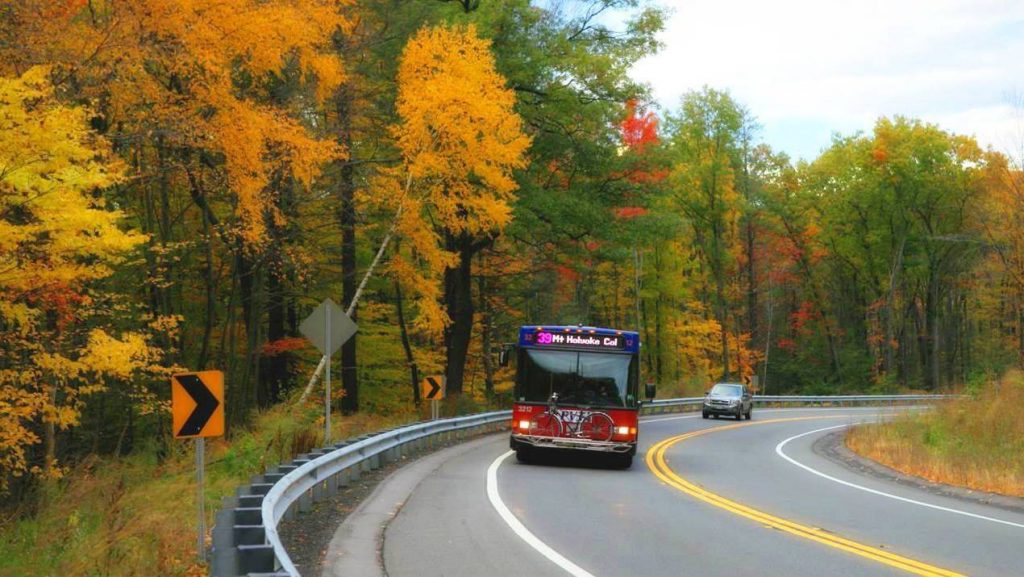
A vital tool in the transportation-funding toolbox

 A bus from UMass Amherst going up scenic Route 116 in the Pioneer Valley. (Image: Mehrashk, Wikimedia Commons)
A bus from UMass Amherst going up scenic Route 116 in the Pioneer Valley. (Image: Mehrashk, Wikimedia Commons)
The current administration is doing what it can to interfere with federal funding for transit, which makes it important that localities have a broad set of transportation funding tools. Today, we share an argument from Timothy Brennan, executive director of the Pioneer Valley Planning Commission, on the need to legalize regional ballot initiatives in Massachusetts and beyond.
Over the past two weeks, transportation news feeds have been full of stories about how the Federal Transit Administration (FTA) is either slowing down the grant process for transit projects, holding up payments on transit projects already approved for federal dollars, or injecting more uncertainty into the funding process by redefining what constitutes local dollars. The message is clear: the current administration believes it is not the role of the federal government to fund transit. They see it as a state and local responsibility, and as such they are on the hunt for ways to require states and local governments to pony up even more resources for projects that receive a share of federal money.
Regardless of how one views the issue (and we believe the federal government should robustly fund transit for a number of reasons), it’s clear that localities must have the broadest set of tools available to finance transportation projects if they hope to secure any federal funding. While many communities are prepared to tackle this challenge at the ballot box, nine states—including the Commonwealth of Massachusetts—prohibit cities and towns from allowing voters to approve local taxes to fund transportation projects. Communities in states that limit the use of regional ballot initiatives may find themselves at a distinct competitive disadvantage as they seek federal funding.
Today, we welcome thoughts from Timothy Brennan, executive director of Massachusetts’ second largest regional planning agency—the Pioneer Valley Planning Commission—on the need to legalize regional ballot initiatives (RBIs) in the Commonwealth.
Unlocking the Potential of RBIs

Timothy Brennan, Executive Director, Pioneer Valley Planning Commission
As the current legislative sessions winds down here in Massachusetts, there is lingering hope that state legislators will enact legislation enabling regional ballot initiatives (RBIs) for cities and towns to raise local transportation funds. State Senator Eric Lesser—who serves as Senate Chair of the Joint Committee on Economic Development & Emerging Technologies and Vice Chair of the Joint Committee on Transportation—is sponsoring legislation that would, if approved, allow voters in regions across the Commonwealth to decide at the ballot box whether to approve a placed-based RBI to generate supplemental funds dedicated to advancing a pre-defined list of transportation projects over 10-20 years.
At a recent RBI legislative briefing session convened by Senator Lesser, a panel of knowledgeable RBI proponents outlined the attributes and benefits of RBIs. Those advocates—from Transportation for America, the Metro Atlanta Chamber, Transportation for Massachusetts, and my own, Springfield-based Pioneer Valley Planning Commission—made the case for why RBIs can be a powerful addition to today’s transportation financing toolbox. I’ve long been a committed advocate for RBIs based on the experiences of other cities dating back to 1987 when voters in the San Diego region approved one of the nation’s first RBIs. Since then, San Diego voters have repeatedly renewed the measure, even with California’s mandatory two-thirds vote margin. This has extended the RBI’s useful life for decades, along with the transportation investment funds it has generated, making San Diego one of the most successful RBI regions anywhere in the United States. Today 41 states have various forms of RBI-enabling laws in place.
Five Reasons Massachusetts—and every state—should allow RBIs
Here in Massachusetts, RBI enabling legislation has yet to be enacted by the State Legislature. Unlike 41 other states where cities and towns can vote on a custom-fitted RBI to fund priority transportation improvements, our residents do not have that option. And RBIs are generally quite popular; historically, RBIs have been approved 70 percent of the time in places on both ends of the political spectrum. So what has 30 plus years of RBI experience in a broad array of metropolitan and rural areas taught us? Five compelling reasons to enable RBIs in Massachusetts stand out:
- SCALE: RBIs can be adjusted to work for regions of different geographic size and reach. Collectively, regions can generate significant local revenue that are solely dedicated to advancing specific, priority improvement projects that are shared with voters before they’re asked to cast their RBI ballot.
- STRUCTURE: All decisions as to whether to approve or reject an RBI are made locally by voters who, in turn, also get to decide on the RBIs local, long-term governance structure.
- STRATEGY: RBIs are by definition “placed-based” financing mechanisms, which give voters in a defined region the ability to shape and act on their desired future. By their very nature, voters must approve the regional transportation investments, necessitating local, public engagement.
- SUCCESS: With RBI enabling legislation in place, sustained success is possible provided there’s evidence of continuing progress on the implementation of the transportation improvements voters approved. RBIs create a mechanism that enlists ongoing voter engagement and sustains RBI support.
- SUNSETTING: Voters must re-visit and re-vote on RBIs every 10 to 20 years, which serves as an ultimate measure of performance and accountability. If real progress is not achieved on the region’s priority transportation improvements during the RBI’s life cycle, the likelihood of this RBI being extended by the voters becomes highly unlikely. As one established RBI district in Colorado proclaims, “promises made need to be promises kept.”
For these reasons, I believe enacting RBI-enabling legislation here in Massachusetts can produce benefits that are comparable to what’s already been experienced in San Diego and dozens of other regions, large and small, across our nation. Massachusetts is one more RBI success story that’s just waiting to happen.
 Pioneer Valley Transit Authority (PVTA) buses at Union Station in Springfield, MA . (Image: Newflyer504, Wikimedia Commons)
Pioneer Valley Transit Authority (PVTA) buses at Union Station in Springfield, MA . (Image: Newflyer504, Wikimedia Commons)



